Garbage Disposal at Sea and in the Eastern Caribbean
The Eastern Caribbean is in the middle of a solid waste disposal crisis. Cruisers arriving in the Islands after a long offshore passage can help the situation greatly by adopting proper waste management. Cruising legend, Don Street, offers his tips and advice.
Published 10 years ago, updated 2 years ago
GARBAGE DISPOSAL SAILING TRANSATLANTIC AND IN THE EASTERN 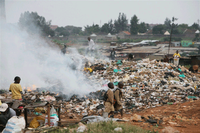 CARIBBEAN
CARIBBEAN
By Don Street Jr.
“Don Street passed away 1 May 2024 at the age of 94.”
No proper sailor wants to pollute the ocean, but those sailors that go to the extreme and sail transatlantic throwing nothing overboard are polluting the land, as in all too many places where they make landfall there is little or no recycling and solid waste disposal varies from poor, to very poor to catastrophically bad.
Also at times bugs have come ashore in yacht garbage, got into the agricultural economy and caused all sorts of problems- the mealy bugs arrived in Grenada this way.
On Passage
Some tips on how to reduce your solid waste on board and make it easier to dispose of once the passage is over follow:
In the galley, there should be three garbage receptacles: biodegradable; sinkable and plastic.
Biodegradable
All food should go over the side; it is biodegradable and will feed the fish.
Sinkable
Bottles and tin cans are sinkable.
Knock the bottom out of the bottles with a bottle breaker, a stainless steel or bronze rod 18” long with a sharp tip at the end. Store the bottle breaker vertically in a rack in the cockpit so it is always handy. Hold the bottle over the side, give the bottle through the neck a tap with the bottle breaker, the bottom comes out and then throw the bottle over the side.
With tin cans, one end should be cut out completely so small fish do not go into the can, grow and get trapped in the can!
Plastics
No plastic should be thrown overboard under any circumstances. Any food that has come in plastic wrappers, rinse the wrappers in salt water and store in a plastic bag until a port is reached and the plastic can be properly disposed of. If the bag that the plastic is being stored in begins to smell, pour in a little bleach and seal the bag tightly. Plastic water bottles can be crushed putting the lid back on to keep them small and pack for disposal ashore.
Other
Two things that are absolutely NON BIODEGRADABLE are the filters on cigarettes and disposable diapers.
Filters from cigarette butts should be put in with the plastic.
If there are children on board in the diaper stage, disposable diapers are not needed, go to the old-fashioned cloth diapers. The fish do a wonderful job of cleaning them. Four Street children have been raised on “Iolaire” and we never used disposable diapers. Only four diapers are needed , one on the baby’s bottom, one on the guardrail hanging over the side being cleaned by the fish, one that has been cleaned by the fish drying on the guardrail, the fourth one on the guardrail has dried on the lifeline, has been rinsed in fresh water and hung out to dry.
Time for a clean diaper, the dirty one tie on a string and hang over the side, the one over the side already has been cleaned by the fish so hang it on the guardrail, the one that has been hanging drying on the guardrail having been cleaned by the fish, rinse in fresh water and rehang back on the guardrail to dry. The one that has been rinsed in fresh water hung on the guardrail and is now dry, that goes on the bottom of the baby and the cycle is ready to start again.
We learned to toilet train early as soon as the baby was old enough to sit up by themselves. Three or four times a day they were sat on a small plastic potty and given a book of pictures to read. As soon as the action happened, high praise. Reading on the potty has come back to haunt us, however. “Iolaire” has only one head, a Street is inside, a line is forming, someone calls out “what the hell is taking you so long”, reply “I am reading”!
Island Cruising
Once in the Caribbean, food should go over the side even in harbors – as long as the harbor is open to the west and you are in a harbor between Grenada and Barbuda. North of Barbuda, most garbage should go over the side except orange, lime, grapefruit skins, and banana peel, as these items will take a month or more to biodegrade. With the NW flowing current, these foods slower to biodegrade may end up on the beaches of the Virgin Islands and Puerto Rico, so should be kept on board and properly disposed of ashore.
In both the US and the British Virgin Islands, despite the fact that both groups of islands have an almost catastrophically bad solid waste disposal problem, NOTHING should be thrown overboard. Everything must be saved, packed in plastic bags and deposited ashore whenever you find trash receptacles. If heading west from the Virgin Islands to the Spanish Virgins and Puerto Rico, check in St. Thomas as to the regulations in these areas.
Bottles and tin cans should be disposed of as if at sea, but ONLY IN DEEP WATER. Anchored in harbors, keep the bottles and tin cans on board until you are in deep water.
In the islands, nothing except plastic should be brought ashore and disposed of at the island garbage collection points. Every island in the eastern Caribbean has a solid waste disposal problem.
DM Street Jr
For a few laughs go to the website, click through to Pilot stories, it will be worthwhile.
Related to following destinations: Anguilla, Antigua & Barbuda, British Virgin Islands, Dominica, Grenada, Guadeloupe, Martinique, Saba, Sint Maarten, St. Barts, St. Kitts & Nevis, St. Lucia, St. Martin, St. Vincent & the Grenadines, Statia, Trinidad & Tobago, US Virgin Islands, USA
Related to the following Cruising Resources: Cruising Information



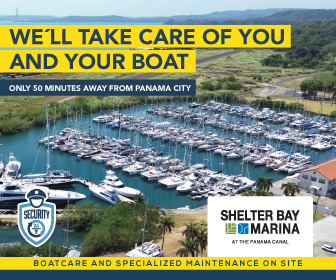


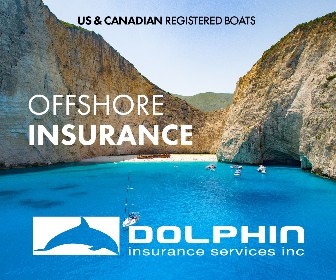
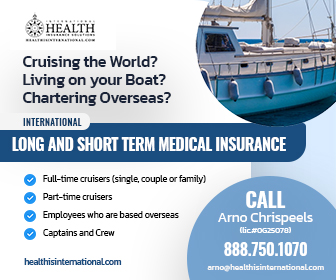
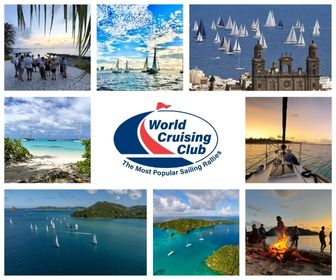
Thanks for this documented article. We had a lot of talks about this issue before the crossing. However, I’m not sure I agree with the cans: most of them have a plastic wrapping on the inside and supposed to contain bisphenol A.